Virtual beings are coming not just to delight, but to challenge us
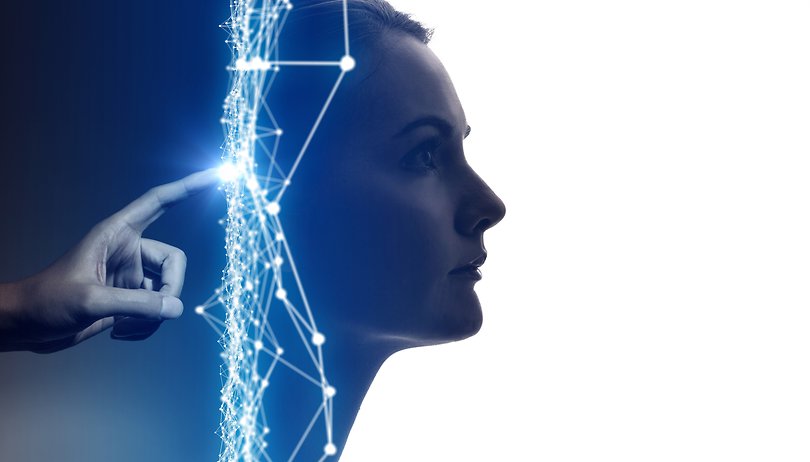

They're coming. The technology of the future won't be shiny and chrome with blinking lights, but rather look just like us, speak with a human voice, remember our interactions, and reply with a wink and a smile. Meet the virtual beings.
To create artificial humans has been an ambition of ours since ancient times, such as in the myths of Daedalus and Pygamilion, who created statues that came to life. In modern times, our imagination moved on from fashioning people out of clay or bronze. Instead, we imagined high-tech androids, such as Data from Star Trek, or the holographic doctor from Voyager. Perhaps our creations would even surpass us, as the immortal replicants from Blade Runner who were 'more human than human.'
Virtual beings like Voyager's doctor may assist our healthcare in the future:
More recently, films like Her and Ex Machina show artificial personalities closer to the technologies we already use today. But what was once the preserve of science fiction may become a commonplace aspect of our daily lives sooner than you'd think.
Although it's impressive enough to see an AI-powered virtual newsreader on screen, what's even more exciting is to have such AI personalities become interactive. To respond to us, to remember, in a way that seems as natural as humans interacting with each other.
Once upon a time
Working towards this goal are several companies operating in the interaction between virtual/augmented reality and artificial intelligence. Once such company, the appropriately named Fable, has set itself the mythical challenge of creating the first fully realized virtual being. Fable used to be a VR content studio, and won critical acclaim with the first chapter of Wolves in the Walls at Sundance last year.
Now, dedicated to a new goal combing AI and immersive storytelling, the company is hosting the first Virtual Beings conference in San Francisco this summer, at which 500 industry leaders in VR, AI and related technologies will be in attendance. On the conference site, Fable provides an elegant definition for what qualifies as a virtual being:
A virtual being is a character that you know isn’t real but with whom you can build a 2-way emotional relationship.
Fable's own upcoming flagship project is Whispers in the Night, an interactive story featuring the virtual being Lucy, who also appeared in Wolves in the Walls. This experience, to be debuted at the Virtual Beings conference, will use Natural Language Processing (NLP), so that Lucy will remember and 'understand' interactions with the viewer (or player?), and act accordingly. The result? Each person's interactions with Lucy should be unique to them, and the memory of the character should lead to the development of an emotional relationship throughout ongoing stories.
The Fable team explain the concept of virtual beings:
Fable may be taking the initiative in putting virtual beings in the forefront, but you may have heard of others, such as Mica, a virtual assistant developed by Magic Leap, or Lil Miquela, the AI-powered Instagram influencer. Some people even refer to popular voice assistants such as Amazon's Alexa or Google Assistant as distinct beings, but although these can be highly personalized, they lack the personality for the supposed two-way emotional relationship.
What's clear is that these explorers are determined to cross the uncanny valley, and as the technologies of hyper-realistic graphics, immersive virtual reality, big data, and AI converge, it seems even more likely that virtual beings will live among us.
In many ways this advanced technology is paradoxically like going back to nature. Rather than using a mouse and keyboard and staring at a flat screen, we will interact with digital information with the language, gestures and facial expressions that come more naturally to us.
The Internet 3.0, a seamless blending of the virtual and the real worlds, could be made possible through this. Even before then, the drive for ever more realistic representation of humans in the arts and entertainment but also in industry, to give a relatable face to the AI 'workers' which may become our colleagues, butlers, customer support agents and trainers in the future.
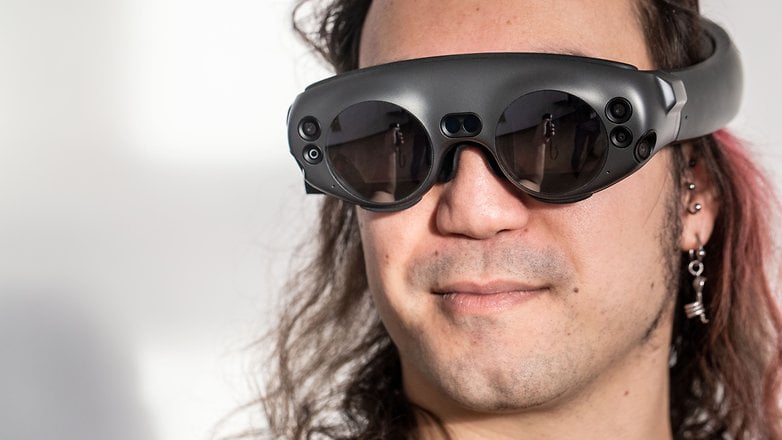
Of course, hand in hand with the attraction also comes inquiet...many people are disturbed and fascinated by virtual beings in equal measure. Is this just a simple suspicion of something that isn't quite what it appears to be? Or something deeper?
More human than human?
First of all, we should reign in expectations about just how sophisticated AI can get, especially in terms of emotional relationships. I've previously stressed how AIs and human brains think very differently and work best in tandem, and that's not getting into something so closely tied to our biochemistry as feelings. We may actually never get to the Star Trek holographic doctor or replicants in real life, but even so, the effort to create virtual beings will be one of the most exciting and thought-provoking modern endeavors for different reasons.
For to successfully create a human necessarily raises the question of what it means to be human in the first place. As we work to create virtual beings, what aspects of us we choose to pass on to our children will inevitably carry our own biases, which AIs are usually all too quick to unthinkingly perpetuate. As responsible creators, should we allow AIs to take on our bad aspects with the good, or should we strive to create exemplars - the best of ourselves in behavior and values? And then, a difficult debate about good, bad, and the validity of moral relativism needs to be had.
As more virtual beings emerge, a yardstick for humanity will become more than just academic, but of more widespread debate about social norms and perhaps even legislation. For some, the Turing Test (if an AI can pass for human in a blind test conversation) will suffice, while others will contest that virtual beings, however sophisticated, will lack an essential 'soul'.
Not for forget the first virtual beings are being created by commercial entities, which, though I don't doubt the genuine artistic and innovative intentions of the people working on these projects, are also being developed as products in a marketplace, whether for entertainment or industry. Created to fulfill these roles, virtual beings will have to contend with a long suspicion about the opposition of money and greed to human dignity, or 'spirit' if you will, held by many religions and philosophies.
In Blade Runner, artificial beings as commercial products don't go as planned:
Many of us are already aware of how much market research is dedicated to emotionally manipulating consumers in subtle ways. Virtual beings have the potential to be this: the most effective salespeople, advertisers, company spokespeople and propagandists you could think of.
Right now, the journey towards fully realized virtual beings is just getting started, of course. Conferences are a good place for open discussion and setting the course, and it's time to look into the mirror and talk about where we want to go. You can't aim to create virtual humans without tackling questions about what it means to be a human in the first place. And who knows, these virtual beings may end up teaching us something, even if we never end up making one.
What do you think about virtual beings? Would you want to see them become mainstream or does it feel too off-putting to consider? Share your thoughts in the comments.


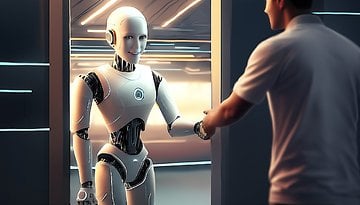
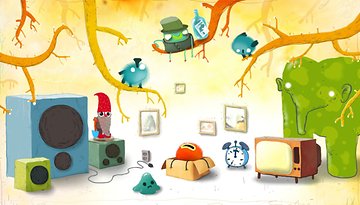



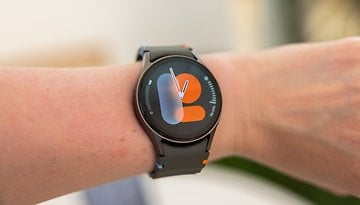
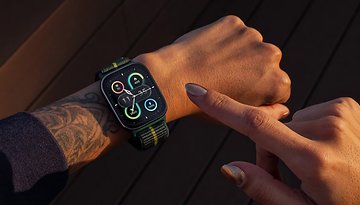





I recently reread Aldous Huxley's "Brave New World" for the first time since the 1960s, when of course it was crudely deemed the alternative "dystopia" to Orwell's "1984". This time around, the characters coming across as more cartoonish, and less likeable, the large social project of the cloned and drugged society forces the uncomfortable question "So, what's so BAD about that?"